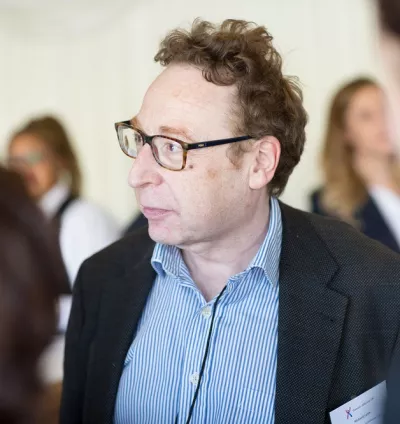Richard started with the BPSU in 1990 when the office was based in the British Paediatric Association garret at 5 St Andrew’s Place at the southeast corner of Regent's Park, London. When Richard took over, the BPSU had only surveyed 10 conditions. With an old IBM green screen computer and dot matrix printer, Richard sent out the BPSU Orange Card to 800 consultants.
The BPSU now sends an electronic reporting card to over 4,000 clinicians; it has surveyed over 120 conditions and published over 300 peer reviewed papers. Richard’s innovative management has taken the Unit forward, and it is now globally recognised as a leader in rare disease surveillance.
Richard helped to found several specialty surveillance units in the UK and other national paediatric surveillance units, culminating in the launch of the International Network of Paediatric Surveillance Units in August 1998. He introduced symposia, workshops and, more recently, webinars. Last year he adapted the BPSU’s methodology to facilitate COVID-19 related surveillance.
The BPSU has been a badge of membership for paediatricians for the last 35 years or so. We all owe this to Richard for his persistence, vision, good humour and a certain amount of cheek. Chairs of the BPSU executive and scientific committee have depended on him, being shepherded and told what to do, while also keeping him out of trouble. An odd symbiosis which seemed to work and led to all the achievements of the BPSU which paediatricians are so proud of. Thanks Richard for everything you have done - we shall not forget you.
Richard, whose family is affected by a rare disease, has always been a strong advocate for patient involvement in all BPSU activities. The launch of the BPSU Rare Disease Day Tea Party in 2015 led to Ministers banging at his door to attend. As an academic, Richard has effected changes in child health policy - his work on Reye Syndrome with Susan Hall led to the extension on the warning on aspirin use in under 16 year olds. With Dasha Nicholls he undertook the first national surveillance of early onset eating disorder which would go on to inform the development of clinical guidelines and lead to the establishment of the Child and Adolescent Psychiatry Surveillance System.
Richard has unfailingly supported and guided paediatricians in their use of the BPSU system, thus greatly contributing to our knowledge about the many rare diseases of childhood and adolescence. His unique experience and his enthusiasm for the work of the BPSU will be really missed.
Richard will continue to advocate for those affected by rare disease through his academic research and involvement with Rare Revolution Magazine, Findacure and others. Richard comments:
I have been blessed to have been guided by leaders in disease surveillance, Catherine Peckham, Euan Ross, Susan Hall, Chris Verity, Angus Nicoll and of course the late great David Baum. There have been challenges at times, seeking funds, ever changing governance rules but I am proud of what the BPSU has become. But none of this could have been achieved without the willingness of clinicians to send back their report cards.
I will now spend time as a carer, but I will continue to undertake academic work and advocate for those affected by rare disease.
On behalf of the BPSU office, clinicians and researchers, we thank Richard for his contribution to the BPSU. Truly the BPSU would not be in the position it is today without his dedication and leadership.
You'll be missed!
Shamez Ladhani, Chair of the BPSU Scientific Committee










